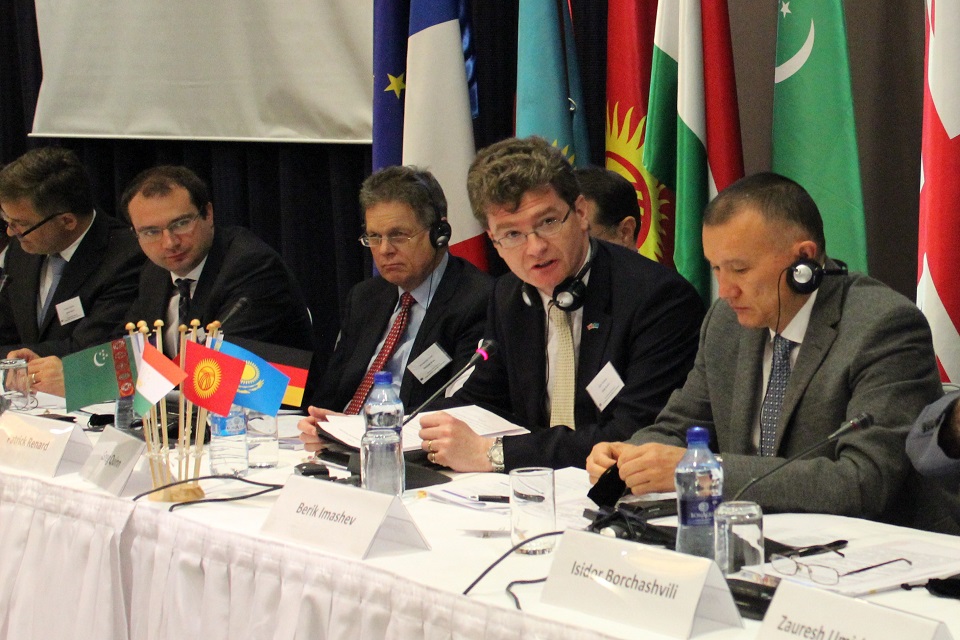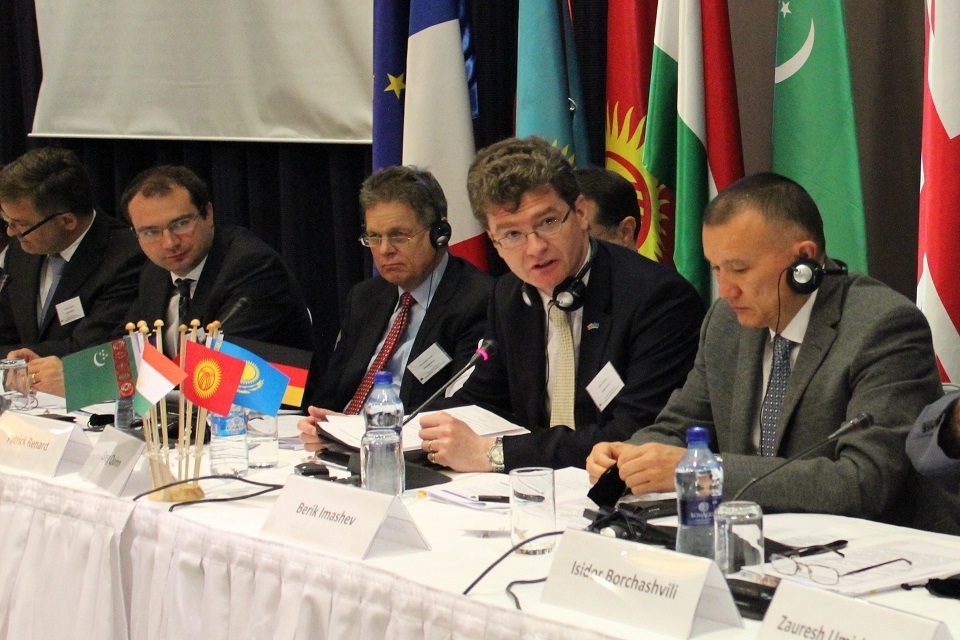Remarks for Regional Seminar on Fair Judicial Expertise in Almaty, Kazakhstan
Speech given by Deputy Head of Mission on 8 July. This is an English transcript of the speech, exactly as it was delivered

Ladies and Gentlemen; Minister Imashev,
First of all let me thank you Mr Barré for asking me to speak at this event. Thank you also to Mr Imashev, the Minister of Justice of the Republic of Kazakhstan, for being here today. I think that demonstrates the level of interest and importance placed in this subject by the Government. Thank you also to all the speakers (including our very own Robert Stevenson from the UK). And finally thank you for your attendance.
Mr Imashev, since 2003 the British Embassy has been supporting projects in Kazakhstan including those on public monitoring of prisons, prevention of torture, death penalty abolition, life imprisonment and imprisonment alternatives. We believe that this support is making a valuable contribution to the reform of criminal legislation in this country. We hope and expect to continue it in coming years.

Greg Quinn
There have been positive developments. There is now an appreciation of the importance of re-socialisation of prisoners; prisoners rights in areas such as health, access to sport, religion and culture have been enshrined; there are additional safeguards against torture; rules on minors have been changed; the Public Monitoring system has been amended; probation services have been widened; medical help expanded; and education rights for life prisoners implemented.
Ladies and gentlemen.
Let me be clear. We support the ambitions and intentions of the Kazakhstani government to modernise its justice system, and to implement the National Preventive Mechanism against torture. However the British Government shares some of the concerns of Kazakhstani Civil Society and other international partners over the reform of the Criminal, Criminal Procedural and Criminal Executive Codes, as well the new code of Administrative Offenses. There are numerous elements in these reforms which could impact negatively on freedom of expression, peaceful assembly, religion or belief, of association and access to information.
We also share concerns about other legislation being discussed or recently signed into law. The Law on Trade Unions could violate the Conventions of the International Labour Organisation which Kazakhstan has signed up to. New laws on telephone and internet communications policy and on emergency situations could create undue restrictions on public debate and access to the internet.
The key will, of course, be implementation and this is where judicial expertise really comes to the fore. And I note that some positive changes have already been approved by MPs in the text of the Criminal Executive Code. We understand that terrorism, religious extremism and separatism are potentially destabilising factors for a nation (and are of concern to us all). We have much sad experience of such issues. But we urge the Government to be measured in its approach to implementation, as well as being respectful of human rights. To not do so risks undermining Kazakhstan’s well-deserved reputation as a regional leader, as it aspires to accede to more international conventions and become one of the most developed economies in the world.
Thank you, Mr Imashev, for listening and for working with us and our international partners. We would like our judicial co-operation to strengthen and deepen. And we believe our relationship is strong enough to allow an honest exchange of views on areas where we might differ.
I hope you find discussions useful and stimulating and wish you well over the coming day.
Rakhmet.